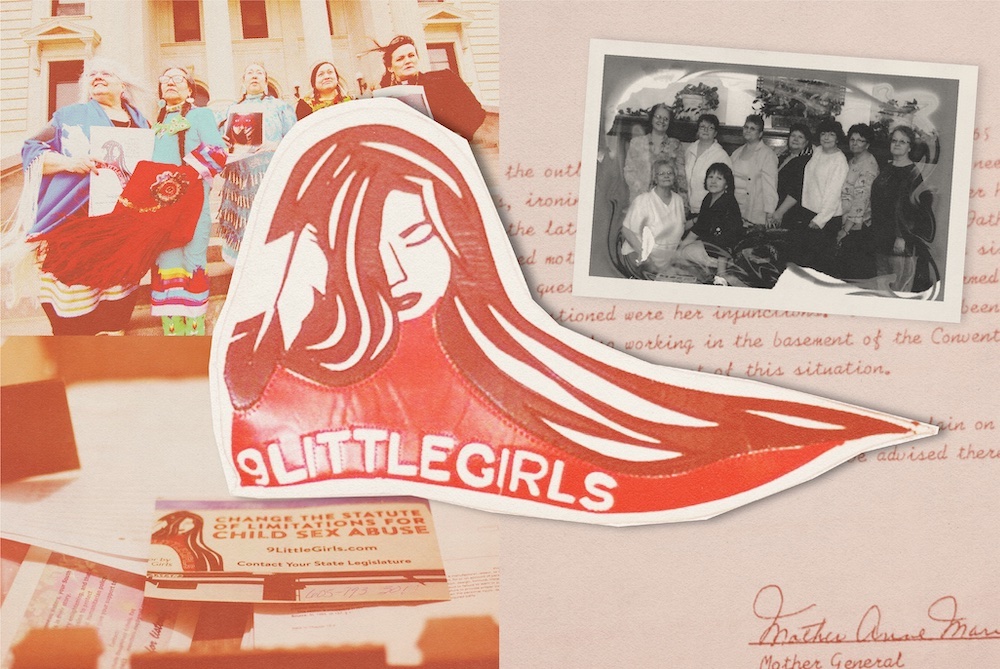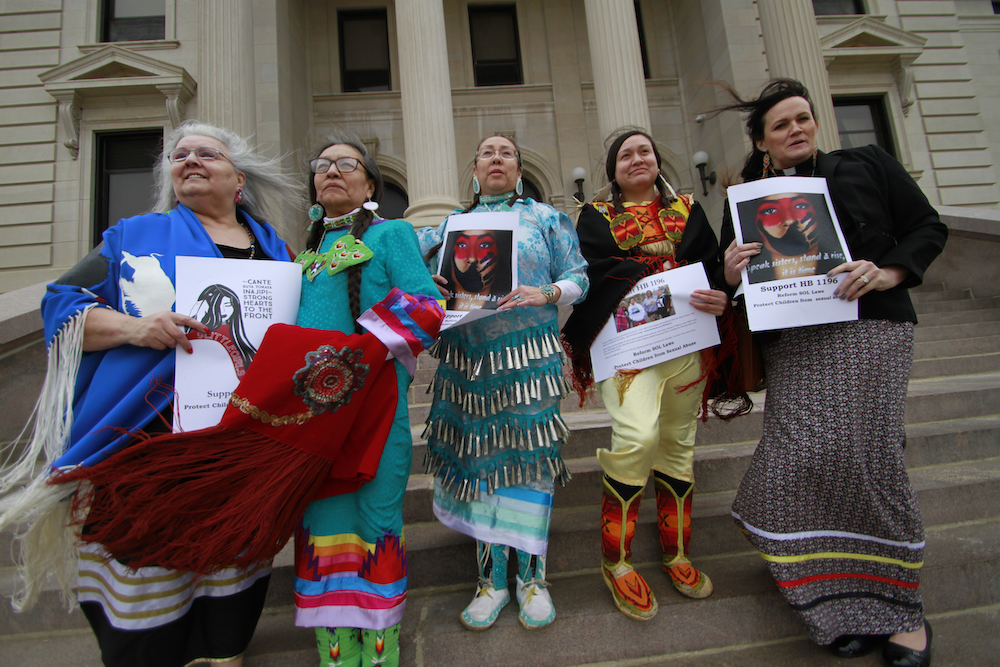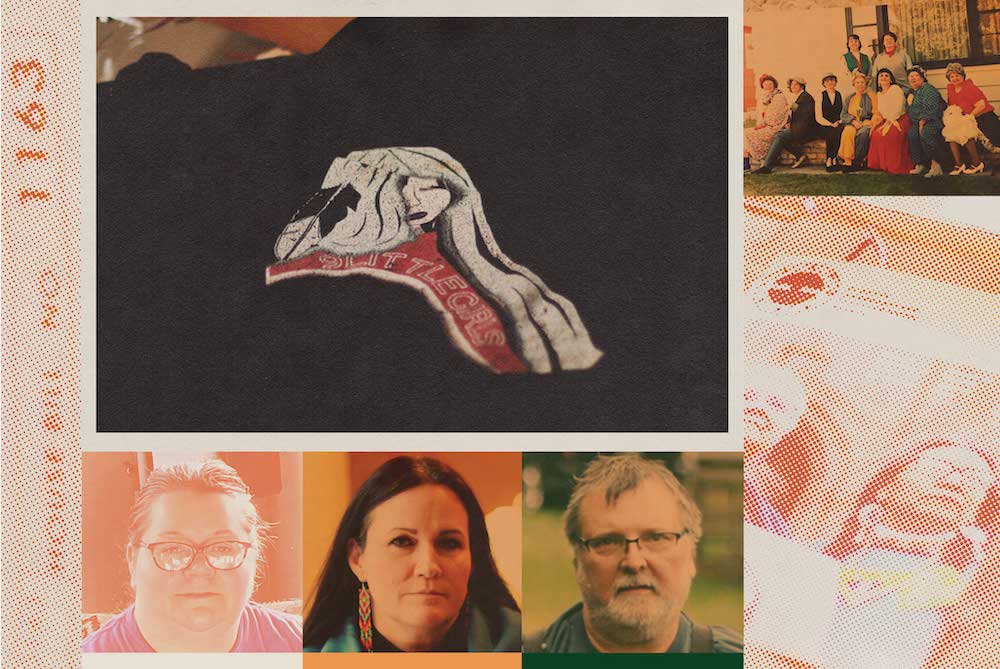
- Details
- By Jenna Kunze
Nine sisters who were abused by priests and nuns at an Indian boarding school in South Dakota have been trying since 2008 to sue the Catholic Church for their abuse. But the church petitioned the state legislature to change the law, and that has kept the nine Charbonneau sisters, members of the Turtle Mountain Band of Chippewa, and other boarding-school survivors from ever getting their day in court. Will they ever see justice? Read the two-part series by Native News Online Senior Reporter Jenna Kunze.
 Part One: ‘They Could So They Did’
Part One: ‘They Could So They Did’
Almost every February for a decade, the nine Charbonneau sisters donned their traditional Turtle Mountain Band of Chippewa regalia, took deep breaths, and piled into cars to travel to the South Dakota Legislature in Pierre. There, the sisters told lawmakers year after year about the abuse they endured as children at the hands of priests, nuns, and staff at St. Paul’s Indian Mission boarding school in Marty, South Dakota.
The sisters’ accounts of molestation, rape, and even a forced abortion aligned with a larger picture of abuse painted by more than 100 other boarding-school students in lawsuits against the Catholic dioceses of Sioux Falls and Rapid City that began in 2003.
But those lawsuits were dismissed by the courts in 2010 as a result of a change in the law. After the Charbonneau sisters’ cases were dismissed, they rallied every year behind legislation that would give them their day in court. Now, Charbonneau family members say that lawmakers' racism, ignorance, and blind support of the church has had its intended effect: Boarding-school survivors are aging, and some have died before ever getting their day in court.
“My mom always said, ‘They’re waiting for us to get old and die so they can forget all about this,’” says the daughter of Barbara Charbonneau-Dahlen, one of the nine sisters.
 Part Two: ‘Their Justice Would Be My Justice’
Part Two: ‘Their Justice Would Be My Justice’
As their mothers, aunties and cousins grow older and, in some cases, walk on to the spirit world, the next generation of Charbonneau relatives takes up the fight for justice against the abuses suffered by the nine sisters.
But they’re struggling, as they wrestle with their own intergenerational trauma, the recent loss of three of the sisters, and an unresponsive legal system.
Faced with considerable obstacles, they say they’re not giving up the fight.
“I want to finish what my mother—our mothers—started,” says one sister’s daughter. “It’s about holding institutions accountable.”
“When I think about it,” says a cousin, an attorney, “their justice would be my justice.”
Tell Us What You Think
More Stories Like This
Native News Weekly (August 25, 2024): D.C. BriefsNative News Weekly (August 4, 2024): D.C. Briefs
Tribal Leaders Press Lawmakers for Solutions to Solve MMIW Crisis
Mary Peltola, First Alaska Native Member of Congress, Defeated by Trump-backed Candidate Nick Begich
Amnesty International: President Biden Must Change Course on Critical Human Rights; Release Leonard Peltier
Support Independent Indigenous Journalism That Holds Power to Account
With the election now decided, Native News Online is recommitting to our core mission: rigorous oversight of federal Indian policy and its impact on tribal communities.
The previous Trump administration’s record on Indian Country — from the reduction of sacred sites to aggressive energy development on tribal lands — demands heightened vigilance as we enter this new term. Our Indigenous-centered newsroom will provide unflinching coverage of policies affecting tribal sovereignty, sacred site protection, MMIR issues, water rights, Indian health, and economic sovereignty.
This critical watchdog journalism requires resources. Your support, in any amount, helps maintain our independent, Native-serving news coverage. Every contribution helps keep our news free for all of our relatives. Please donate today to ensure Native News Online can thrive and deliver impactful, independent journalism.

